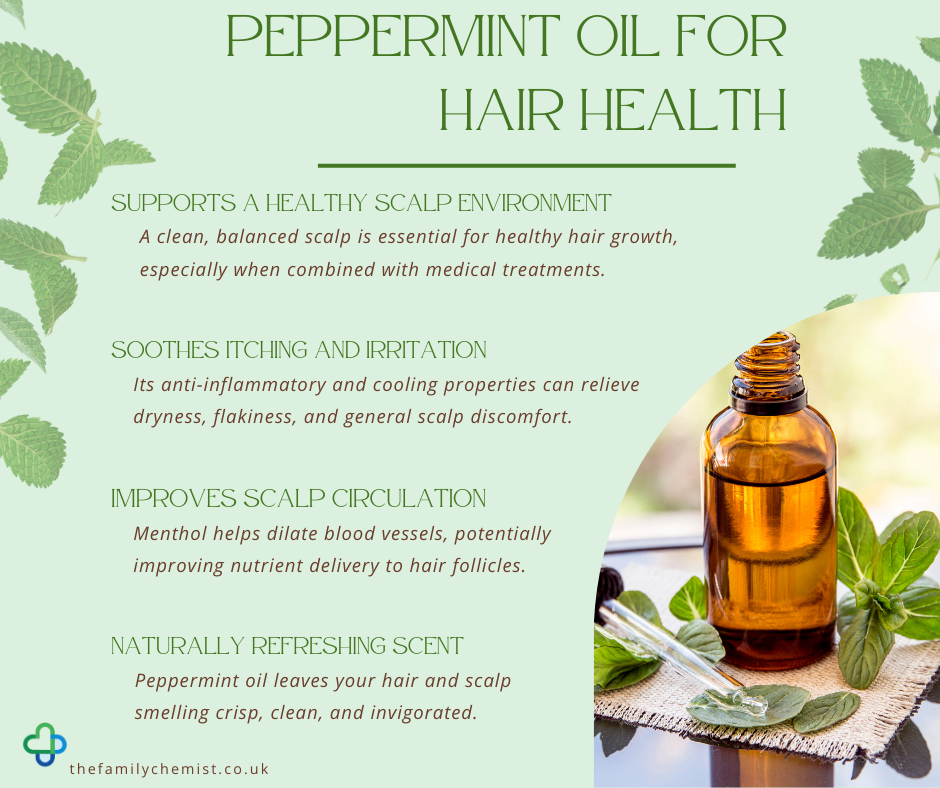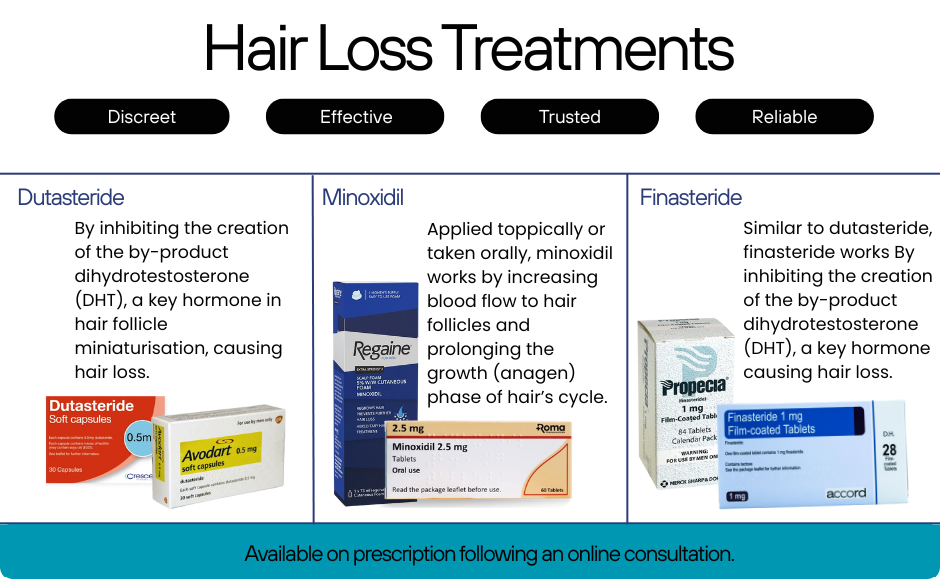Peppermint Oil and Hair Loss in Men: Is It Worth Trying?
When it comes to keeping a healthy head of hair, most men are familiar with the standard advice: eat well, reduce stress, and stay consistent with treatments. But with the rising interest in natural solutions, many are turning to essential oils for scalp care. Especially for their affordability, simplicity, and soothing benefits. One natural remedy gaining traction is peppermint oil.
Known for its refreshing scent and cooling sensation, peppermint oil is commonly used in skincare and aromatherapy. But can it really support hair regrowth or slow down thinning hair? Is it a helpful addition, or just a hype?
What Is Peppermint Oil?
Peppermint oil is an essential oil extracted from the peppermint plant. Its signature menthol component gives it a distinct cooling effect and refreshing, sharp aroma. Beyond its widespread use in cosmetics and digestive aids, peppermint oil is increasingly being explored for its potential benefits in hair care.
In topical use (on the scalp), peppermint oil is believed to:
- Stimulate blood circulation to the scalp
- Improve overall scalp health
- Soothe itchiness and inflammation
- Encourage healthier hair growth
But what does the actual science say about these claims?
The Science Behind Peppermint Oil for Hair Growth
Early studies (mostly in animals) suggests that peppermint oil might support hair growth when applied topically in a diluted form. In one study, mice treated with peppermint oil showed faster hair regrowth and entered the anagen (growth) phase more quickly than other groups, including those treated with minoxidil (a popular regrowth application).
The results showed visible improvement in hair thickness and follicle depth. But while this may all seem promising, it’s important to note that:
- These findings are from animal studies, not human clinical trials.
- The studies did not focus on androgenetic alopecia (male pattern baldness).
So, while peppermint oil shows potential, its effectiveness for common forms of male hair loss remains a theory only.
Male Pattern Baldness and Peppermint’s Limitations?
Understanding the root cause of hair loss helps clarify where peppermint oil fits in. Androgenetic alopecia (male pattern baldness) is the most common type of hair loss on men. It’s caused by certain factors, but most commonly due to a genetic sensitivity to the hormone dihydrotestosterone (DHT). DHT gradually shrinks hair follicles, shortens the hair growth cycle, and eventually leads to thinning and permanent hair loss.
This is why treatments that directly target DHT (such as Finasteride) are usually more effective when it comes to hair regrowth. Peppermint oil, while it may enhance circulation and sooth the scalp, does not block DHT and therefore does not address the underlying cause.
So, Is Peppermint Oil Still Worth Trying?
Yes, but with realistic expectations. While peppermint oil won’t reverse male pattern baldness, it can still support overall scalp health and work well as part of a hair care routine.

However, for men experiencing noticeable hair thinning or balding, peppermint oil alone is unlikely to deliver meaningful results.
Proven Treatments for Hair Loss in Men
If you’re looking for results backed by science, it’s best to consider clinically proven treatments. At The Family Chemist we offer a range of treatments for hair thinning and hair loss.
How to Use Peppermint Oil Safely
If you’re looking to support your scalp health naturally, peppermint oil might be worth trying. However, to ensure that you are using it safely, dilute with a carrier oil such as coconut oil or jojoba oil to prevent irritation. And do a patch test to check for allergic reactions or sensitivity. While generally safe, peppermint oil is potent and can cause irritation for some users. Avoid direct application to broken or inflamed skin.
The Bottom Line
Peppermint oil can be a refreshing and beneficial addition to your hair care routine, but it’s not a miracle cure for hair loss, especially for conditions like male pattern baldness.
Think of it as a supportive tool, not a standalone solution. For meaningful regrowth and long-term results, clinically backed treatments are your best bet. Still, combining science with a little natural care might just be the boost your scalp needs.
If you’re ready to take action against hair loss, start by consulting with a healthcare provider and completing a quick online assessment. You can even keep the minty freshness going while working on real results.








